Typically I’m way more focused on what my body can do vs how my body looks, but I won’t lie: My expanding waistline when I hit menopause was a source of growing displeasure. As a marathoner, consistent gym-goer, and mostly healthy, mindful eater, I felt I was doing more than enough to keep my weight under control and that I “should” know how to prevent this from happening.
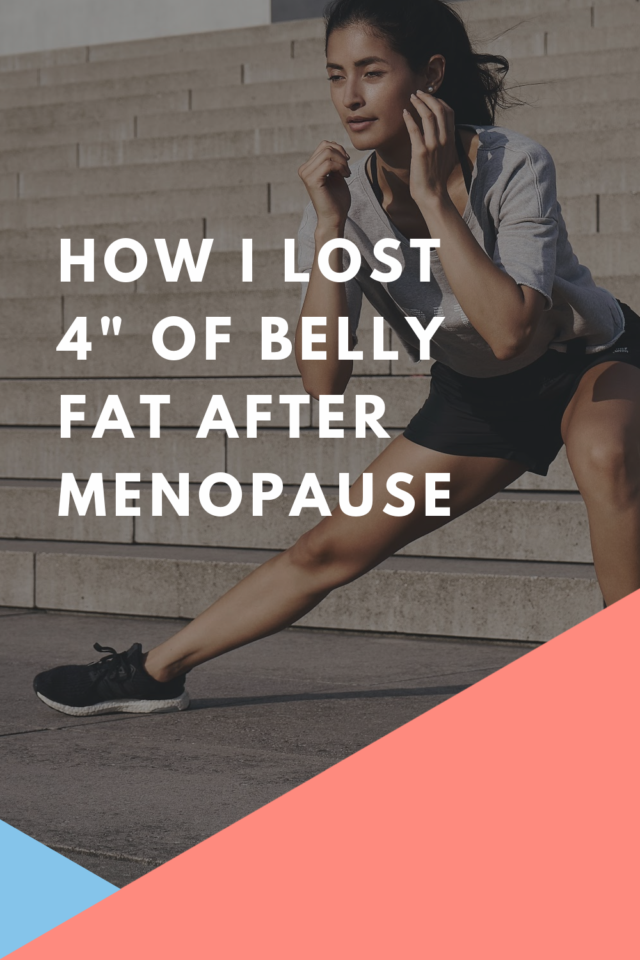
I fell victim to the exercise more, eat less trap, because how often do you hear the phrase “calorie deficit”? While it makes all kinds of rational sense, and maybe it works for most people, I’ll tell you right now, it did NOTHING to improve the belly fat situation once I hit menopause.
I tried two bouts of intermittent fasting, each six weeks long. While many people swear by fasting and enjoy dramatic results from it, I did not. I did learn the reason why fasting did not work for me so read on.
I’ll say this upfront: We’re all different and we all age differently thanks to genetics, lifestyle factors, etc., so what did not work for me may be the answer for others. I was determined to crack the code. There HAD to be a scientific reason why I was piling on belly fat.
I do have a compounding factor. I never want to use it as an excuse but Hashimoto’s hypothyroid is an autoimmune disease that leaves those of us that suffer from it feeling cold, depressed, sluggish and it really throws the brakes on the old metabolism. I’d managed to stay relatively fit since being diagnosed with Hashimoto’s right after the birth of our youngest daughter, but when menopause hit, things got tough. Very tough. I gained weight despite marathon training, hitting the gym 3x a week and eating better than I ever had.
I sought medical help and was underwhelmed. My doctor basically told me to suck it up. She told me it was “normal” to gain weight in menopause and I was actually lucky I hadn’t gained more.
Another doctor offered me bioidentical hormones to the tune of 7 grand a year, out of pocket.
Yet another doctor had me try an estrogen patch with a progesterone supplement. Sadly this caused even more weight gain and desperation. What she did offer in addition though, was an appointment with a holistic endocrinologist.
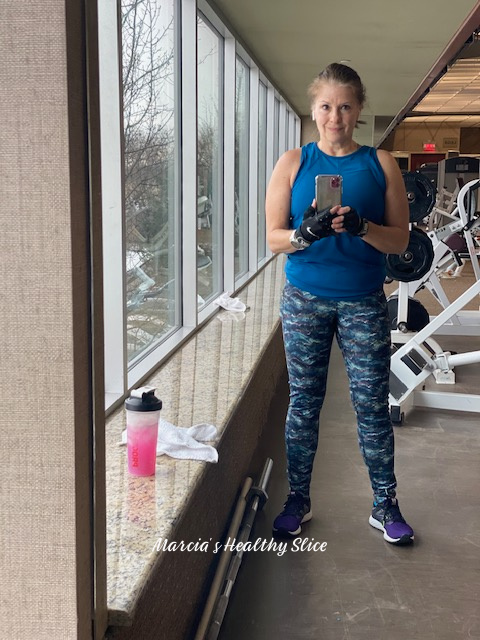
Here’s where it got interesting. While all the other doctors insisted my thyroid numbers were “normal”, the endocrinologist told me my thyroid antibodies were off the charts. While there is prescription medication available to address this, she wanted me to try the AutoImmune Protocol Diet first. I’m all for less meds and I believe food IS medicine, so I listened.
What is the AutoImmune Protocol?
It’s a highly restrictive diet. The premise is that autoimmune disease (think celiac disease, IBS, rheumatoid arthritis, Hashimoto’s Thyroiditis and Graves Disease, etc) begins in the gut. In the AIP diet, the most inflammatory foods are removed to allow the gut to heal, then carefully re-introduced group by group, over the course of several weeks. The list of no-nos is a long one:
No gluten
No eggs
No dairy
No soy
No nuts
No beans
No seeds
No legumes
No nightshades (peppers, potatoes, eggplant)
No alcohol
No artificial sweeteners
No fructose consumption in excess of 20g per day
No emulsifiers, thickeners or food additives
No NSAIDS (aspirin or ibuprofin)
When my Endocrinologist recommended I try the AIP diet, she told me “it’s difficult but not impossible” and she assured me I would not starve. She was right. With so many things eliminated, it took some time figuring out what I COULD eat. My first order of business was attending an AIP webinar, getting some AIP cookbooks and doing lots of internet research.
This is my favorite AIP cookbook. I still make many of the recipes from it.
What I learned from the AIP diet
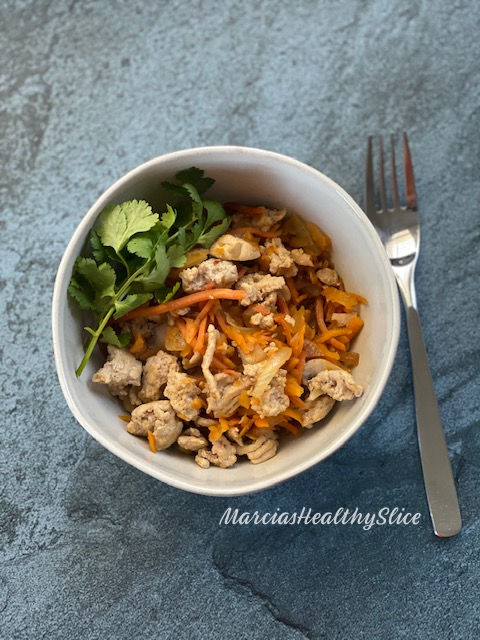
I made this turkey veggie skillet is from the AIP cookbook mentioned above.
You need to cook. A lot.
Meal planning is essential. I found a couple of breakfasts I liked and made batches to freeze. I also made AIP “nuggets” with AIP dipping sauce to have as a snack. For dinners I did ok with fish, chicken or beef and green veggies.
Read labels like it’s your job. It was so rare to find packaged foods that I could actually eat because cheap ingredients like soybean oil, soy lecithin and emulsifiers are seemingly everywhere.
It gets worse before it gets better. But it does get better. The first day or two was ok, but stuff started hitting the fan toward the end of week 1. I was So so hungry. I got So so cranky. Week two was much better. Still no picnic but at least my foul mood lifted and I no longer wanted to chew off an arm.
Week three was SO very challenging because we went on a 3-day road trip. Travel while on the AIP diet is challenging to say the least. In the single restaurant meal we had, I ordered a spinach salad (spinach, raw mushrooms, red onion) with oil and vinegar on the side. I was still hungry afterward. Otherwise I subsisted on grocery store salad bar greens, pouches of tuna, apples and beef jerky.
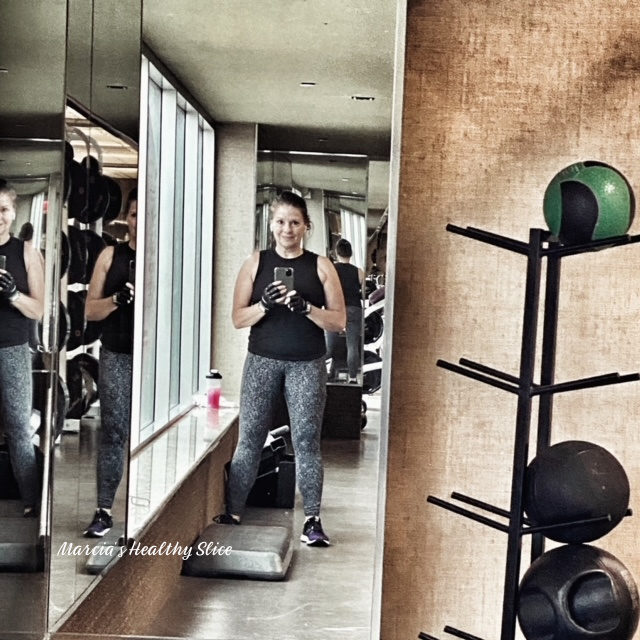
After 3 weeks on the AIP diet, I found a groove. Each week I’d step on the scale/body composition contraption at the gym and be thrilled with the steady downward trend on weight and body fat while my muscle mass increased. After 3 weeks I felt like I’d been able to string together enough solid days to feel confident about staying the course the entire 6 weeks. I’d come too far to screw it up now.
I didn’t realize how good I could feel. I’d been advised to be gluten-free in the past, but I’d promptly dismissed the suggestion because I thought I felt fine. I’d thought people with gluten issues experienced tummy cramps, indigestion and/or irritable bowels. That wasn’t me. But when I ate the AIP way, I felt amazing. Not so much as a burp. More energy. The brain fog lifted. When I started the AIP diet back in January, 2020, I was feeling moody, cold and sluggish, and worst of all, carrying excess weight, mostly in the form of visceral belly fat.
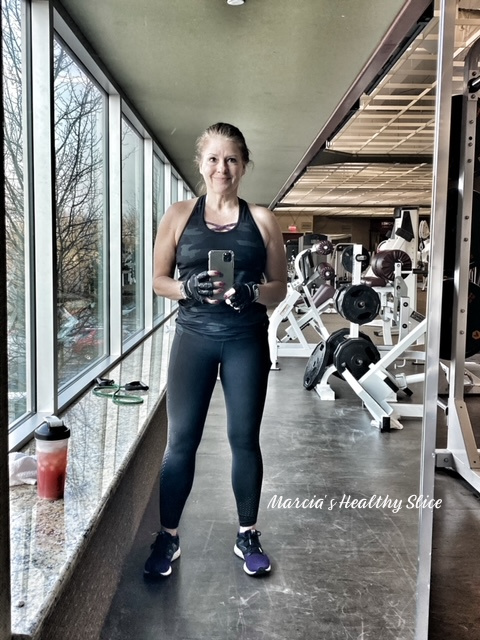
Over the course of the 6 weeks here are the changes in body measurement I experienced
Weight change: -15 lbs
Chest: -1″
Waist: -4″
Hips: -2″
I told you I’d rather focus on what my body can do so I’ll tell you.
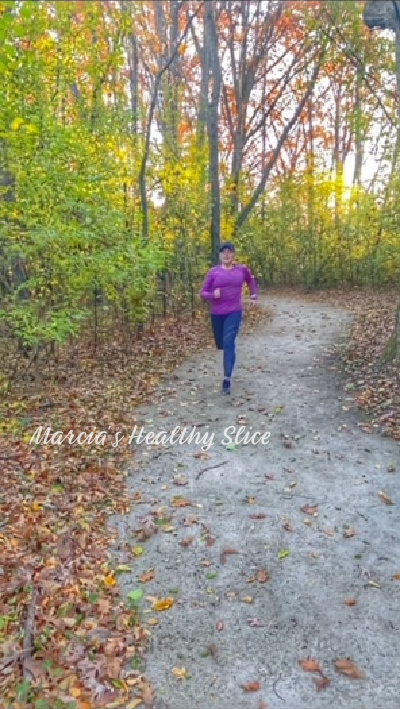
I spend the vast majority of my running time out on trails. There’s a climb on one of my favorite trails that, even in ideally cool weather, I could not get all the way up without a walk break. After losing 15 pounds I can easily run all the way up, even in hot summer weather. In fact I can do numerous repeats of that ascent without walking.
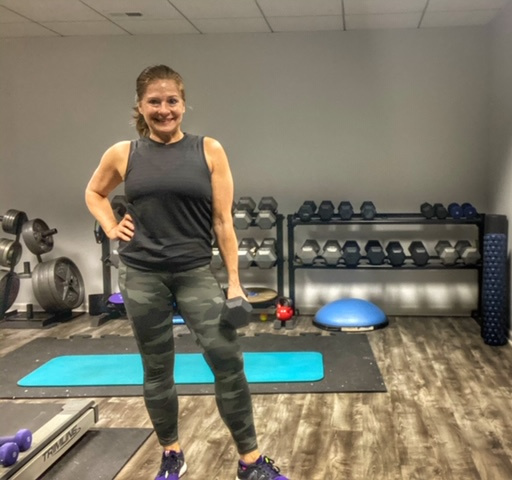
According to my Garmin, my VO2Max is up 3 points since losing the weight. That’s without doing specific “marathon training” type workouts. This means my body is converting oxygen to energy more efficiently. I’m just as strong as I ever was.
How I’m keeping the weight Off
So yeah I’ve kept the weight off more or less, for almost a year now. Here’s what’s working.
Staying gluten and soy free. After 6 weeks of the AIP diet, I entered a “reintroduction” phase. Each week I’d add back one of the food groups that had been eliminated. I was able to add back everything EXCEPT for foods containing gluten and soy. When I eat those, my thyroid antibodies shoot way up. While that does eliminate some very delicious options, it’s been ok for the most part but it hasn’t been easy.
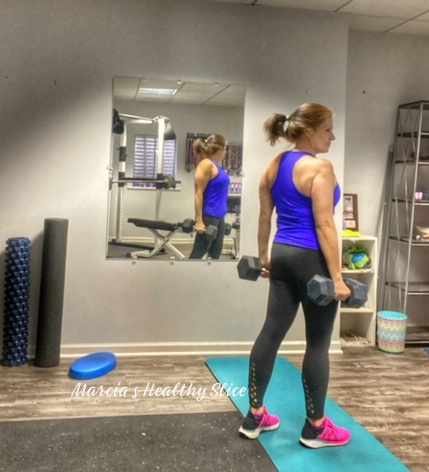
No more fasted workouts. For years I always did my morning workouts and runs up to 8 miles in a fasted state. I fueled longer runs with sugar-laden gels and drinks. All of that stopped cold.
When women are menopausal or peri-menopausal, their estrogen level is dropping or has dropped. Estrogen aids in recovery. It buffers the stress hormone cortisol. Cortisol is a fat storage hormone. When cortisol spikes, the body holds onto fat. When I was going out for those fasted morning runs, I was spiking my cortisol. When I was doing intermittent fasting, I was spiking my cortisol. That fat was collecting around my middle.
Making the change to eating breakfast BEFORE working out, has been a game changer for me. I’ve also been keeping my runs to one hour in length or less, with most of them being in the 30 minute range. This is why the workouts on my YouTube Channel are shorter. The oxidative stress of those super long marathon training runs was doing me no favors. I won’t say I’ll never train for another marathon, but at this point I know it is not in the best interest of my health.
Full disclosure. While I’ve managed to keep the weight off, it hasn’t been easy. There are times I still struggle with food I shouldn’t have, like snacks and sweets. The holidays were difficult with all the treats laying around. Previously I thought of myself as “mostly” gluten free. I’ve since learned that going gluten free is black and white. You’re either gluten free or you are not.
Final Words. This is what works for ME. Take note having autoimmune disease is at the root of much of this, although the dropping estrogen thing is universal for all women in menopause. Be careful what you see on social media. What works for someone else may not be in your best interest.
Have you experienced metabolic changes as you’ve aged? Ever tried the AIP diet?
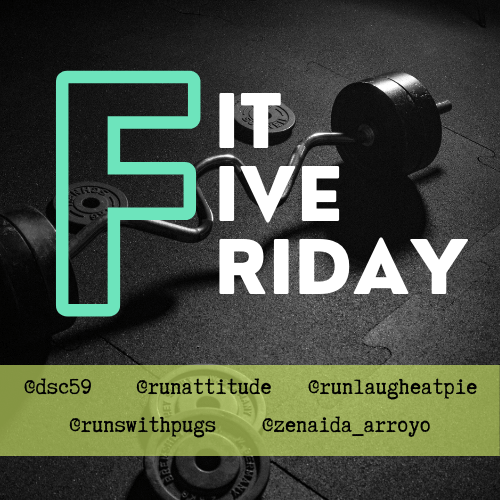
I’m linking up with Darlene, Michelle, Renee, Jenn and Zenaida, for Fit Five Friday. Join us!


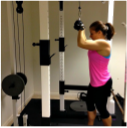
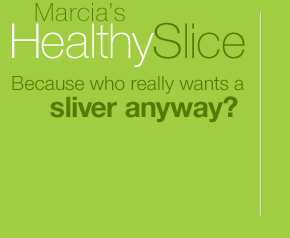
Thanks so much for sharing all this! It’s SO interesting! Did you try adding back gluten and it didn’t go well? How did you figure out fasted workouts were backfiring? (I don’t eat before my workout, not because I’m trying to do a fasted workout, but because I’m rolling out of bed and lacing up.)
I’m so glad this worked for you! I have tried many, many things but not AIP. but then I have to ask myself if I really want to restrict myself even more and the answer is no. So I’m either going the surgical route (highly unlikely) or the accepting route (more realistic). I’m. on HRT now and thankfully haven’t gained any weight. But I’ve been working hard the last 4+months so that I don’t gain anything.
I too struggled with belly fat after menopause. I changed my diet because of RA, removing refined carbs, dairy, and other foods that seemed to trigger inflammation. Amazingly, my spare tired went away. I also think that the heavy lifting I do with SJ helped a ton. Women have to look at things differently after menopause.
Thank you for sharing this! I’m sure you’ll find a lot of women in the same boat with this. Weight gain after menopause doesn’t have to be an inevitability.
The most important part of your story is “I kept the weight off more or less for almost a year now”. That’s legit.
I’ve done the journey from “I don’t have time to eat before my workouts and it’s fine” to “good God what was I thinking”. It was night and day difference.
All of this is very interesting. I know you had written about it along the way but thanks for sharing this again and your “final” thoughts on it. I believe I am in the premenopause stage. I was going to say that I am not looking forward to menopause but no one really is. I cannot stop it but at least I know what to expect and will not be the only woman going through it. 🙂
I have never tried the AIP diet and I like pretty much everything on that list that you cannot eat. But I know that if I have to then I will. I like what the endocrinologist said “it’s difficult but not impossible”. Many things in life are like that too!
Thanks for sharing your story here. I am really glad that you found a plan that works for you.I have also struggled w this but perimenopause. My Dr also told me there was not much to do about it. I have also recently found a program that works for me. I’ve started to lose a lot of my belly fat as well. I also do not do fasted workouts, they don’t work for me. I now count macros and realized that increasing my protein significantly is what makes a huge difference for me. Looking forward to talking about this in person w you sometime! Feeling good about yourself and what you are doing is key!!
I well remember, a year ago, as you were going through the AIP change. Knock wood, I haven’t noticed any of “the change” happening yet, but I know it’s just around the corner LOL. I’m glad you were able to find a solution to you issues 😉
It’s pretty amazing that you lost 15 lbs at a time when most people are gaining that amount, also considering what you’ve gone through this year — plus having an autoimmune condition!
I found I really struggled much more during perimenopause, which went on a LONG time for me, and once I hit menopause, actually, the weight seemed to come off. I still have to be careful, as you know as another vertically challenged gal.
I’m glad you finally found what worked for you, Marcia.
I remember when you did the 6 week program last year. My goodness, that takes so much grit and determination to stick to that restrictive diet. I’m impressed.
I just suggested to my husband that we need to clean up our diet as well… too many refined carbs, sugar and dairy. Your example really inspires me do to something about it. Thank you, Marcia!
I think you look awesome (not that you ever looked heavy).
It is so amazing to me that you are so disciplined.
I was always too thin and then menopause came and i gained the weight (in ugly places.) I hide it with appropriate clothes lol
I have always needed to eat in the morning before I run. I even eat a snack before afternoon or evening runs.
So interesting! Its frustrating that your first few doctors couldn’t help you, but Im glad you found someone who could. It’s great that you have seen such good results and are feeling so much better!
Thank you so much for sharing this! I remember when you started the AIP diet – I’m so glad you were able to find a plan that worked for you. I have been so frustrated by my own meno-pot situation and am looking forward to talking with my doctor at my upcoming appointment.
So glad you’re feeling better!
I’m so happy you found something that works for you and led to the results you wanted. Even though I am sure it was challenging, you sound like you feel amazing, so it’s all worth it!
Wow, lots of great information here. As you said, everyone has to figure out what works for them. I don’t have an autoimmune issue, but the point about cortisol could be pertinent. I don’t eat before workouts and a lot of the commenters here are agreeing with you that it’s important- I’m going to try it. Thanks for the detailed post and congratulations on taking the time to get to the bottom of your issue- you took the harder route (as opposed to taking a medication) but it sounds like it was worth it.